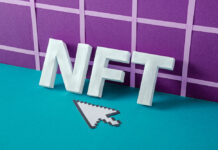
Tiago Máximo, a Portuguese shoemaker, is the owner of a small boot shop in Barcelona, Spain. His traditional handcraft method, inspired by his family ancestors in rural Portugal, contrasts with his sophisticated payment method options that include Bitcoin.
Merchants Accepting Bitcoin Still Facing Issues
Urban Shepherds, a brand of traditional Portuguese work boots, has its only physical store in Barcelona. While founder Tiago Máximo is hopeful about growing the business brick-and-mortar style, he is also invested in selling online.
With cryptocurrencies on the rise, the more Máximo learned about it the more he agreed to it: “The concept and philosophy behind it all are amazing and it makes sense. And I think there is a need in the market for that. More than that, it is a demand”, he told Tech Crunch. “I’m an entrepreneur. Anything that makes us thrive and go further and better, why not?”
Despite accepting Bitcoin online, most of the company’s sales come from the physical store. Máximo, however, says he would like to be one of the crypto pioneers and is attempting to have a percentage of his sales in bitcoins.
Bitcoin, however, is currently falling short and Máximo points to two key issues: “The fluctuation of the price of cryptocurrency and the time it actually takes to arrive in my bank account are the two main issues for now.”
The bitcoin acceptance rate among businesses in 2017 kept dropping as the bitcoin price continued to push higher. Bruce Fenton, founder of Atlantic Financial and board member at the Bitcoin Foundation, said in an interview that “there are some micro transaction uses cases – a cup of coffee is the big analogy everybody uses – that are being sort of priced out just because bitcoin is going up so much.”
Overstock.com Inc. introduced Bitcoin as a payment method in 2014, and while sales in Bitcoin have tripled since then, board member Jonathan Jonhson says the company brings as much as US$ 5 million per year from Bitcoin. Things are put into perspective when compared to its total revenue of US$ 1.8 billion.
Many fear that Bitcoin will go mainstream as an asset rather than a transaction method. In a move to bring merchants and consumers to the same table, Coinbase released in February a tool that eases the payments process.
Coinbase Commerce can be directly integrated into a merchant’s checkout flow or added as a payment option on an e-commerce platform.





































